Filter by
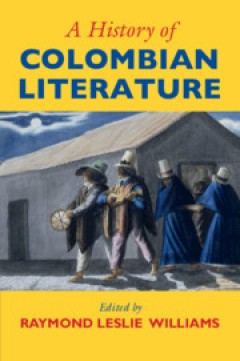
A History of Colombian Literature
In recent decades, the international recognition of Nobel Laureate Gabriel García Márquez has placed Colombian writing on the global literary map. A History of Colombian Literature explores the genealogy of Colombian poetry and prose from the colonial period to the present day. Beginning with a comprehensive introduction that charts the development of a national literary tradition, this Histo…
- Edition
- -
- ISBN/ISSN
- 9781139963060
- Collation
- -
- Series Title
- -
- Call Number
- -

A History of American Working-Class Literature
A History of American Working-Class Literature sheds light not only on the lived experience of class but the enormously varied creativity of working-class people throughout the history of what is now the United States. By charting a chronology of working-class experience, as the conditions of work have changed over time, this volume shows how the practice of organizing, economic competition, pl…
- Edition
- -
- ISBN/ISSN
- 9781316216439
- Collation
- -
- Series Title
- -
- Call Number
- -

A History of American Puritan Literature
For generations, scholars have imagined American puritans as religious enthusiasts, fleeing persecution, finding refuge in Massachusetts, and founding 'America'. The puritans have been read as a product of New England and the origin of American exceptionalism. This History challenges the usual understanding of American puritans, offering new ways of reading their history and their literary cult…
- Edition
- -
- ISBN/ISSN
- 9781108878425
- Collation
- -
- Series Title
- -
- Call Number
- -
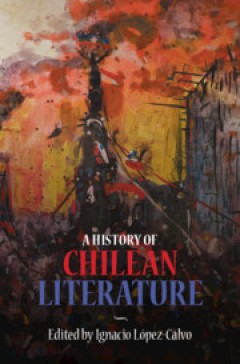
A History of Chilean Literature
This book covers the full range and diversity of Chilean literature from the times of the Spanish conquest to the present. By emphasizing transnational, hemispheric, and global approaches to Chilean literature, it reflects the relevance of themes such as neoliberalism, migration and exile, as well as subfields like ethnic studies, and gender and sexuality studies. It showcases the diversity of …
- Edition
- -
- ISBN/ISSN
- 9781108766616
- Collation
- -
- Series Title
- -
- Call Number
- -
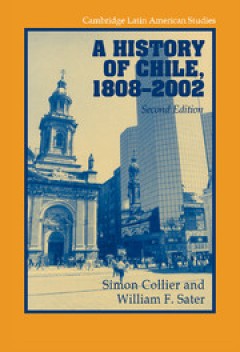
A History of Chile, 1808–2002
A History of Chile chronicles the nation's political, social, and economic evolution from its independence until the early years of the Lagos regime. Employing primary and secondary materials, it explores the growth of Chile's agricultural economy, during which the large landed estates appeared; the nineteenth-century wheat and mining booms; the rise of the nitrate mines; their replacement by c…
- Edition
- -
- ISBN/ISSN
- 9780511991189
- Collation
- -
- Series Title
- Cambridge Latin American Studies
- Call Number
- -
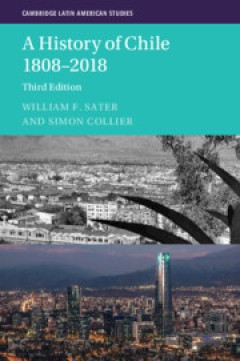
A History of Chile 1808–2018
As Chile has continued to grow and prosper in the twenty-first century, this new edition of the definitive history of the country brings the story of its political, social and cultural development up to date. It describes how Ricardo Lagos and Michelle Bachelet, both highly educated Socialists, modernized the country and integrated new interests into Chilean political life, and how the billiona…
- Edition
- -
- ISBN/ISSN
- 9781009170222
- Collation
- -
- Series Title
- Cambridge Latin American Studies
- Call Number
- -
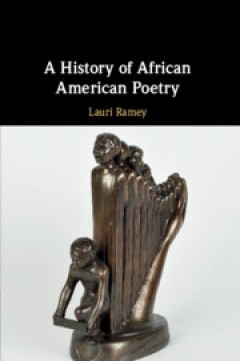
A History of African American Poetry
African American poetry is as old as America itself, yet this touchstone of American identity is often overlooked. In this critical history of African American poetry, from its origins in the transatlantic slave trade, to present day hip-hop, Lauri Ramey traces African American poetry from slave songs to today's award-winning poets. Covering a wide range of styles and forms, canonical figures l…
- Edition
- -
- ISBN/ISSN
- 9781139548939
- Collation
- -
- Series Title
- -
- Call Number
- -
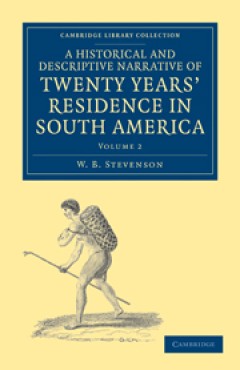
A Historical and Descriptive Narrative of Twenty Years' Residence in South Am…
In 1804 when W. B. Stevenson (fl. 1803–25) arrived on the small island of Mocha, just off the coast of South America, he stepped onto a continent on the brink of mass revolution. Over the next twenty years, he had an extraordinary range of experiences: as a traveller, a Spanish government official, a prisoner, and as secretary to an ex-Royal Navy admiral turned revolutionary. In this three-vo…
- Edition
- -
- ISBN/ISSN
- 9781139060592
- Collation
- -
- Series Title
- Cambridge Library Collection - Latin American Studies
- Call Number
- -
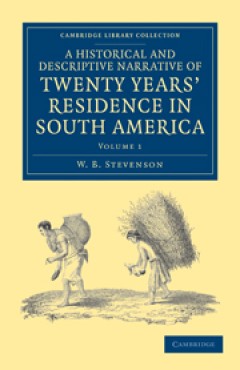
A Historical and Descriptive Narrative of Twenty Years' Residence in South Am…
In 1804 when W. B. Stevenson (fl. 1803–25) arrived on the small island of Mocha, just off the coast of South America, he stepped onto a continent on the brink of mass revolution. Over the next twenty years, he had an extraordinary range of experiences: as a traveller, a Spanish government official, a prisoner, and as secretary to an ex-Royal Navy admiral turned revolutionary. In this three-vo…
- Edition
- -
- ISBN/ISSN
- 9781139060585
- Collation
- -
- Series Title
- -
- Call Number
- -

A Grand Army of Black Men Letters from African-American Soldiers in the Unio…
The Civil War stands vivid in the collective memory of the American public. There has always been a profound interest in the subject, and specifically the participation of black Americans in and reactions to the war and the war's outcome. Almost 200,000 African-American soldiers fought for the Union in the Civil War. Although most were illiterate ex-slaves, several thousand were well-educated, …
- Edition
- -
- ISBN/ISSN
- 9780511663574
- Collation
- -
- Series Title
- Cambridge Studies in American Literature and Culture (63)
- Call Number
- -
 Computer Science, Information & General Works
Computer Science, Information & General Works  Philosophy & Psychology
Philosophy & Psychology  Religion
Religion  Social Sciences
Social Sciences  Language
Language  Pure Science
Pure Science  Applied Sciences
Applied Sciences  Art & Recreation
Art & Recreation  Literature
Literature  History & Geography
History & Geography